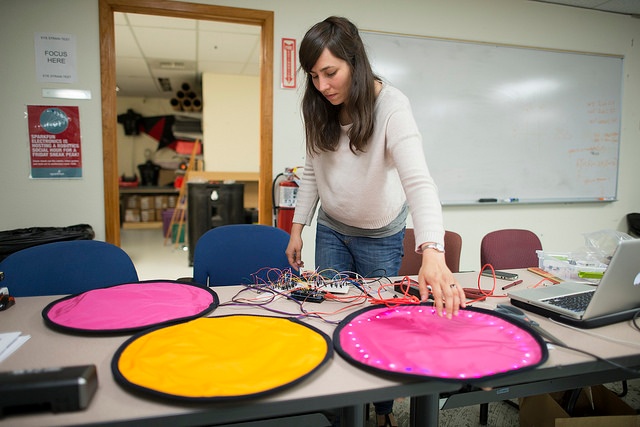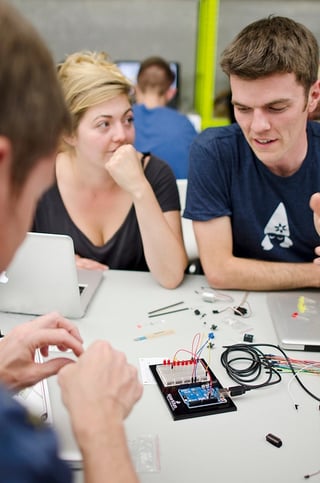Getting started using electronics in the classroom can be daunting at first, especially for those who have little to no experience with programming or hardware. However, the No. 1 piece of advice we hear from educators who have made the transition is to just GET STARTED! Stop waiting until you feel like you know everything and embrace the joint learning that can happen as you learn along with your students. To help ease the transition, here are a few tips.
Create a Safe Space

Create a space where students are free to try new things and pursue their ideas. This can be a corner of a classroom, a dedicated makerspace, or just a cart that gets rolled out when it’s time to work on projects. When students feel safe to explore their ideas and let their creativity soar, they are more likely to dive into electronics.
Be Willing to Let Go
It’s OK if you don’t have all the answers. Students who are engaged in their projects will be willing to put in the effort to find the answers they need. Simply being there to help guide them in the right direction or provide moral support can go a long way toward finding the answer.
Encourage Collaboration

Encourage students to turn to one another first when they run into a problem. Chances are another student may have already run across the same issue and found a solution — or may have insight that can help. Assisting other students in the class will help increase their confidence and allow all parties, including the teacher, to learn together.
Congratulate and Celebrate
Electronics can be an unfamiliar realm for many students. Encourage them to keep trying by celebrating both big wins, such as a successful project completion, and smaller wins, such as achieving a breakthrough on a concept they’ve been stuck on. Taking time to celebrate the wins, big and small, may just provide the motivation a student needs to keep going.
What’s the best tip you ever heard on getting started using electronics in the classroom?



Maker Education, getting started, helpful information